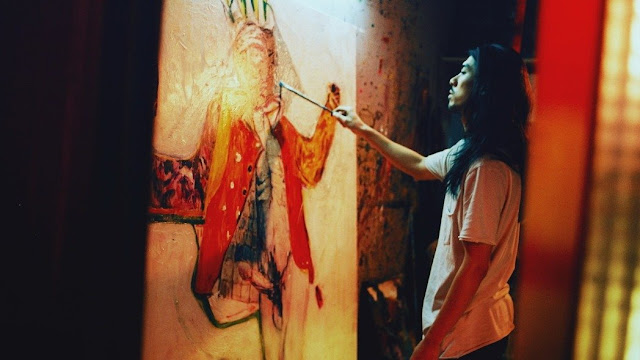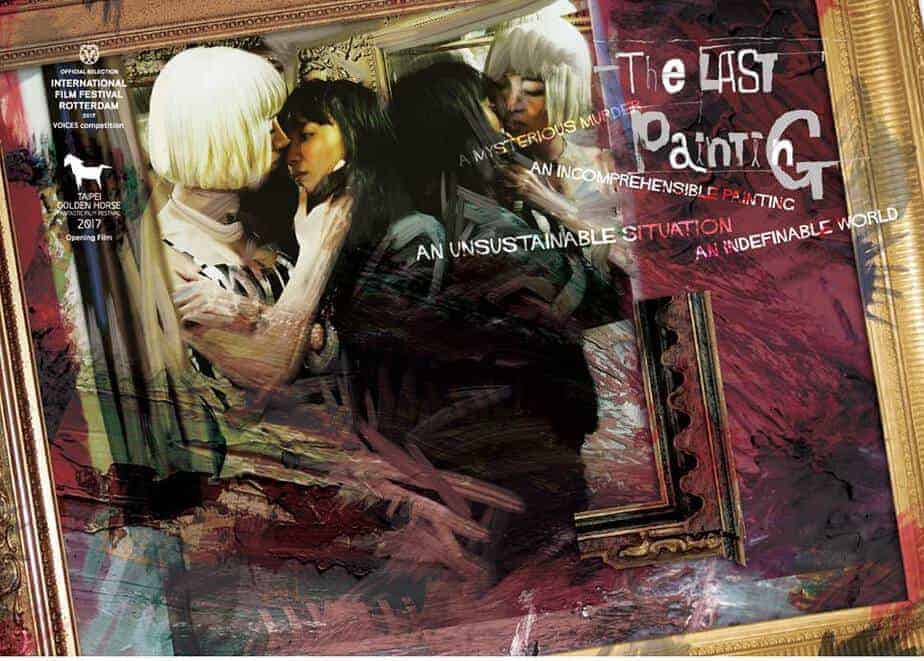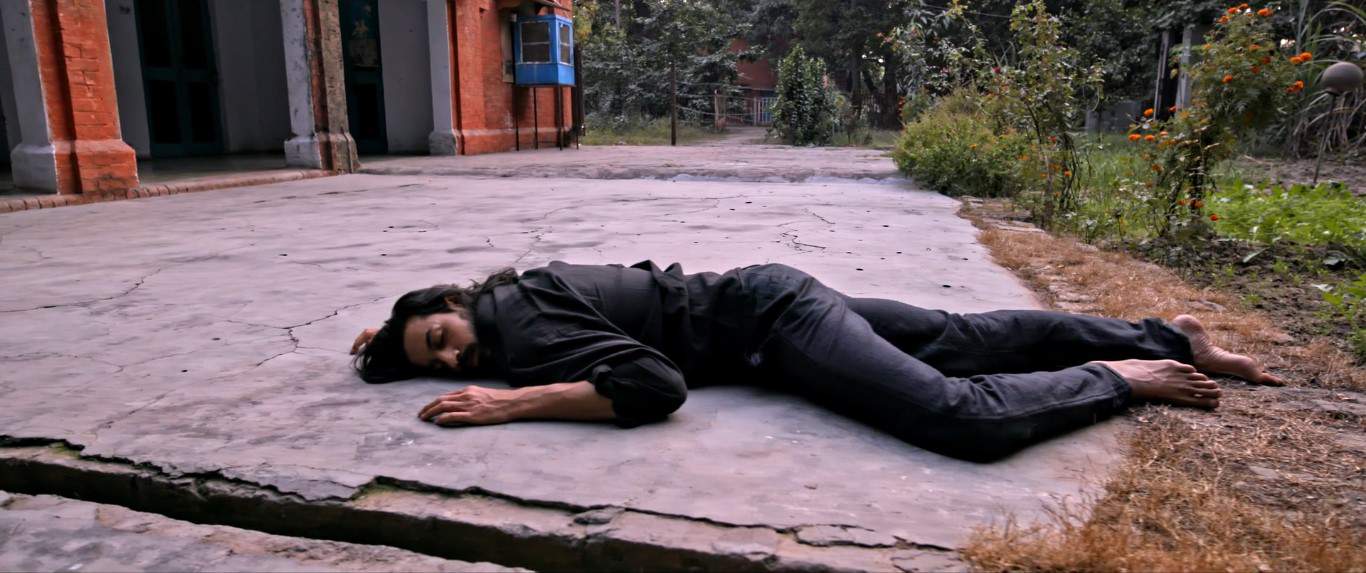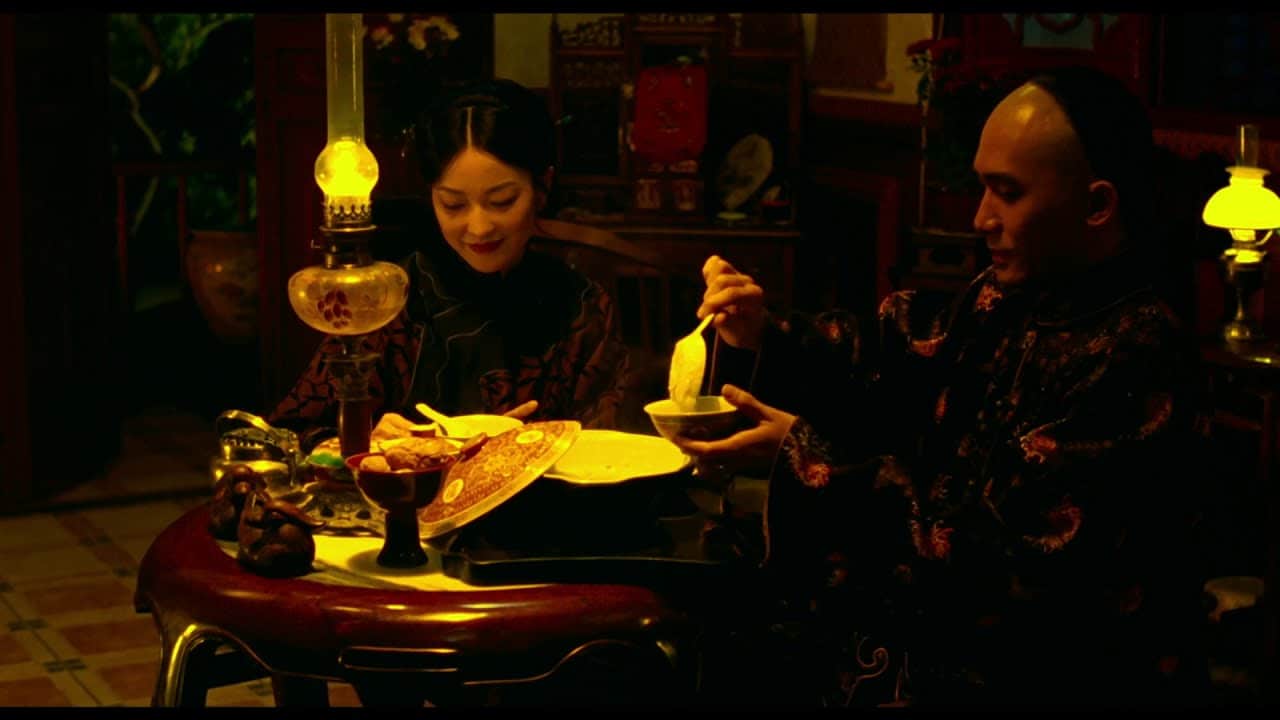The film starts on January 16, 2016, the day of the presidential elections in Taiwan (Tsai Ing-wen of the Democratic Progressive Party (DPP) was elected President with 56%), in an apartment where the police is investigating the scene of an appalling crime, where a woman has been found dead with her eyes gouged out. The setting then changes and a woman is giving the eyes to an artist, who submerges them into paint and proceeds on drawing.
“The Last Painting” screened at International Film Festival Rotterdam (IFFR)
The story then goes back four months, when Yang Chieh, the victim, a student of politics and political activist, arrives at the flat of the aforementioned painter, Jhong Jiang Ze. She is accompanied by her transexual, feisty, and Barbie-like friend, Nana, who works in a lingerie store. The two flatmates do not get along from the beginning, as he ignores her, and she becomes annoyed by his smoking, and the moaning of his girlfriend, dancer San San, that occurs every night when the two of them have sex. Furthermore, San San is the woman that brought the eyes to Jhong in the introduction.
However, eventually Yang Chieh learns about Jhong's political activism history and tries to stir him into directing his art towards political themes. Meanwhile, she tries to bond with a political candidate she idolizes, who eventually is revealed to wish very different things for her. Gradually, the past and the true characters of the three main characters, Yang Chieh, Jhong Jiang Ze and Nana are revealed, and end in truly tragic fashion.

Chen Hung-i, who directs, pens and edits, uses a rather abstract and somewhat surrealistic narration, which, despite becoming a bit confusing at times, seems to fit the general aesthetics of the film quite well. Furthermore, it serves the plethora of messages he wants to present, which include the connection of art and politics, self-awareness, family, jealousy, sex, crime and punishment. His comments on the above subjects give the film a philosophical hypostasis, although the crime thriller elements remain in the background, only to come forth in the finale.

Despite the violence of the beginning and the ending, and a few minutes of two consecutive, quite graphic sex scenes, the atmosphere of the film is not violent or erotic, as it seems to focus on politics and art. In that fashion, the movie is split in chapters, counting down from seven, each one indicated by a different painting by real Taiwanese artist Jhong Jiang Ze (the fact that the protagonist has the same name is a kind of tribute), which are accompanied by an impressive 3D sequence that gives them motion.
Yu Jing Ping's cinematography is imposing, following the abstract and surrealistic aesthetics of the film, while presenting a number of very beautiful images of urban Taipei, usually through scenes that involve Jhon riding his bike. Cicada's string sounds also move in the same, fitting direction, while the ensemble itself occasionally appears on screen, in a kind of humorous tactic that breaks the fourth wall.

J.C. Lin is great as the stoic, sad artist Jhong Jiang Ze, who has left the “world” to focus on his art. The same applies to Chang Ning as Yang Chieh, who portrays a passionate girl who tries to get away from her past and her family, while struggling to do the right thing as a citizen and human. The one who steals the show though, is definitely Kiwebaby as Nana, who presents a very likeable (and feisty and motley) persona, only to shatter it completely as the story progresses. Lin Wei Yi as San San is also persuading in the archetype of the femme fatale.
“The Last Painting” is an impressive film on all aspects, which demands the unwavering attention of its audience in order to tell an elaborate and filled with meaning story, which is revealed as a whole, in the film's finale.















